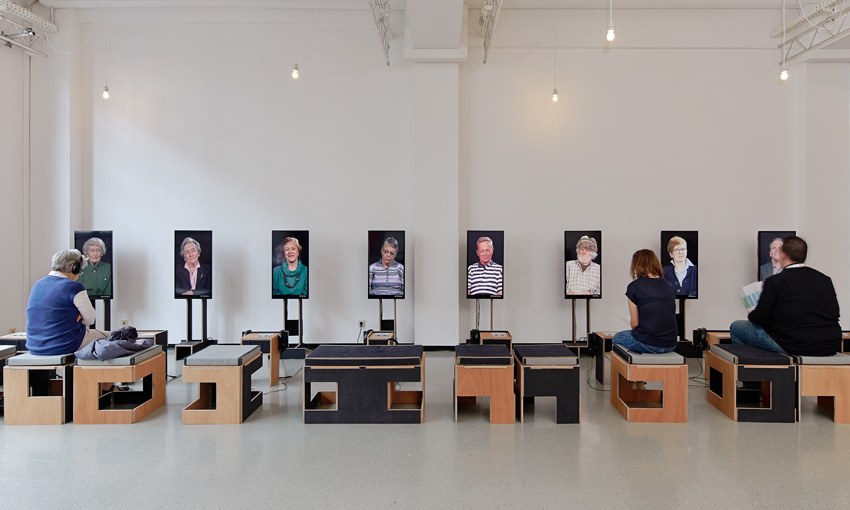Swiss artist Mats Staub has turned an aptitude for human connection into a gentle yet highly revelatory artwork, which will make its Australian Premiere at this year's Adelaide Festival.
The art of human connection
While making his ever-evolving 21:Memories of Growing Up installation, Swiss artist Mats Staub says he is orchestrating interactions that sit somewhere between psychoanalysis and a chance meeting.
“It is not the same as therapy where you go regularly,” he says. “And – I have never had this experience – but it’s more like meeting a stranger in a train.
21: Memories of Growing Up is exhibiting March 2 – March 18, from 10am-5pm daily (except on public holidays) at the Institute Building on North Terrace as part of Adelaide Festival.
“But still, it is different to that because we meet three times and you can develop an intimacy and you can develop an opportunity for letting go.”
To create the work – which takes the form of an audio-visual exhibition, Mats has arranged 170 of these stranger-on-a-train type meetings in eight different cities around the world.
In them, he initially creates an audio recording of an interview. The topic of the interview is always the same – with Mats asking participants about the year they turned 21 and what they believe it means to be an adult.
Some days later – after editing the audio of the interview down from the initial length (often an hour or two hours long) to about ten or fifteen minutes of sound – Mats plays the audio back to the interviewee. While they listen, he films them.
It is these short films of people from around the world listening back to stories of their own lives that make-up the installation.
“From the beginning, I had this vision of a room full of faces, but not talking, just listening. And they are getting older and older or younger and younger as you move throughout the room,” says Mats.
Mats has been working on the project since 2012, and is attempting to gather interviews that cover every year in a century.
While he has conducted interviews in places as diverse as South Africa’s Johannesburg and Germany’s Frankfurt, he is beginning to see strong common threads in the work.
“So many people are connected through stories,” says Mats. “Maybe they don’t know each other, maybe they live on different continents, but suddenly through music, through different things, there are connections.
“There is one guy I met in Germany – at 21 he was in Tehran just after the revolution, so totally different circumstances to me, but how he was describing his circle of friends, I felt as though he was talking about me.”
Each of the films is presented in portrait orientation, recalling for the viewer the intimacy of a photographic or painted portrait. It’s in this immediate feeling of proximity and familiarity, which is bolstered by the gentle nature of the installation’s content, that the power of this art is revealed.
Mats says the success of creating this depth in each interview depends almost entirely on his ability to make a genuine connection with the participant.
“It is a lot about creating a protected space for everybody,” says Mats. “So I have thought a lot about how I can protect my participants so that they open up and they will be exhibited but not in an uncomfortable way.
“To make this happen, I think it’s quite important how the design of the interview experience is. I think about how do I do it? Where do we say hello? All these things matter.”
21: Memories of Growing Up does not open until March 2, but Mats has been in Adelaide for several weeks conducting interviews with participants here.
The local films will form part of the exhibition showing here during Adelaide Festival, as will – for the first time – a film featuring Mats himself.
“Even knowing what will happen, I was astonished,” says Mats. “It was really such a good experience that someone was so interested in my story and wanted to talk with me for quite a long time.”
That curiousity and care for others’ experiences, and an insight into how we see ourselves, is something that Mats is sharing around the world.




